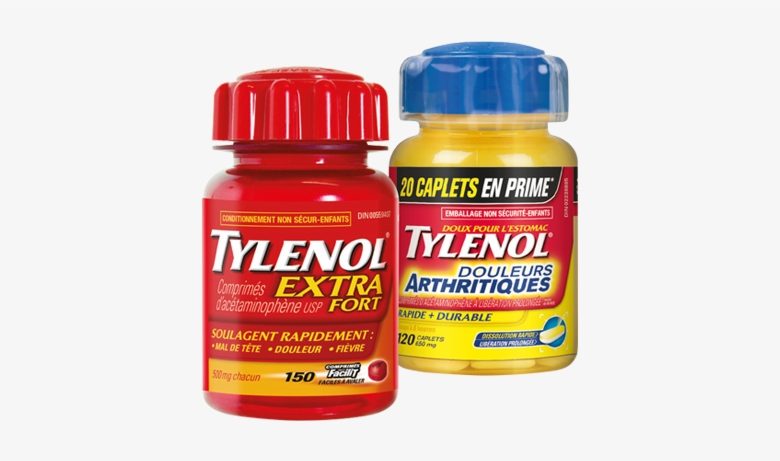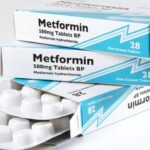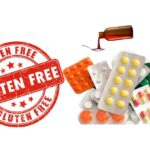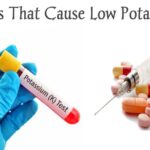These 20 Drugs May Contain High Levels Of Gluten!

Gluten is a protein found in wheat, barley, and rye. For people with celiac disease or gluten sensitivity, even small amounts of gluten can cause symptoms such as abdominal pain, bloating, diarrhea, and fatigue. Therefore, it is important for these individuals to avoid consuming gluten in any form, including in medications.
Gluten-free drugs are medications that do not contain any gluten in their ingredients. Some manufacturers have started producing gluten-free versions of their medications to accommodate people with celiac disease or gluten sensitivity. However, it is important to note that not all drugs are available in gluten-free formulations, and some may contain gluten in the form of fillers or additives.
The FDA requires drug manufacturers to disclose the presence of gluten in their products, but there are no regulations or guidelines on the maximum amount of gluten that can be present in a medication. However, the vast majority of oral drugs either contain no gluten or have a very low level of gluten that is unlikely to cause harm to people with celiac disease or gluten sensitivity. It is always recommended to consult with a healthcare provider and pharmacist to ensure that any medications you are taking are safe for your specific condition.
In this article, we shall be listing the list of medications with the highest levels of gluten.
How do I know if my medication is gluten-free?
If you have celiac disease or gluten sensitivity and need to know if your medication is gluten-free, here are some steps you can take:
1. Check the medication label: The medication label should list all the ingredients used in the medication. Look for any ingredients that contain wheat, barley, rye, or oats, which may be contaminated with gluten during processing. If the label does not provide sufficient information, you can contact the manufacturer for more information.
2. Check with your pharmacist: Your pharmacist may be able to provide information about whether a medication is gluten-free or not. They may also be able to recommend gluten-free alternatives if the medication contains gluten.
3. Check online resources: There are several online resources that provide information about gluten-free medications and the Celiac Disease Foundation’s medication database. However, it is always recommended to double-check the information with your healthcare provider or pharmacist before taking any medication.
4. Consult with your healthcare provider: Your healthcare provider can help you determine if a medication is safe for you to take based on your specific condition and medical history. They may also be able to recommend gluten-free alternatives if needed.
Overall, it is important to take precautions when taking any medication if you have celiac disease or gluten sensitivity. Always read the medication label, check with your pharmacist or healthcare provider, and be vigilant about any potential sources of gluten in your medications.
List Drugs With The High Levels Of Gluten?
It is important to note that the FDA does not require drug manufacturers to list gluten on their labels, and the level of gluten may vary between different brands and formulations. However, here are some examples of commonly used drugs that may contain gluten:
1. Synthroid (levothyroxine) – used to treat hypothyroidism
2. Advil (ibuprofen) – a nonsteroidal anti-inflammatory drug (NSAID)
3. Allegra (fexofenadine) – an antihistamine
4. Celebrex (celecoxib) – a nonsteroidal anti-inflammatory drug (NSAID)
5. Crestor (rosuvastatin) – a statin used to lower cholesterol
6. Imodium (loperamide) – an antidiarrheal medication
7. Lamictal (lamotrigine) – used to treat seizures and bipolar disorder
8. Nexium (esomeprazole) – a proton pump inhibitor used to treat heartburn and acid reflux
9. Plaquenil (hydroxychloroquine) – used to treat malaria and autoimmune disorders such as lupus
10. Prilosec (omeprazole) – a proton pump inhibitor used to treat heartburn and acid reflux
11. Prozac (fluoxetine) – an antidepressant
12. Singulair (montelukast) – used to treat asthma and allergies
13. Topamax (topiramate) – used to treat seizures and migraines
14. Tylenol (acetaminophen) – a pain reliever and fever reducer
15. Zoloft (sertraline) – an antidepressant
16. Zyrtec (cetirizine) – an antihistamine
17. Ritalin (methylphenidate) – used to treat ADHD
18. Flexeril (cyclobenzaprine) – a muscle relaxant
19. Seroquel (quetiapine) – used to treat bipolar disorder and schizophrenia
20. Xanax (alprazolam) – used to treat anxiety and panic disorders
It is always recommended to consult with a healthcare provider or pharmacist if you have concerns about the gluten content of your medications. Additionally, there are resources available online, such as GlutenFreeDrugs.com, which provide information on gluten-free medications.
What medicine helps with gluten allergy?
There is currently no cure for gluten allergy (celiac disease) or gluten sensitivity. The only effective treatment is to adopt a strict gluten-free diet, which involves avoiding all foods and products that contain wheat, barley, rye, and related grains.
In some cases, people with celiac disease may also need to take vitamin and mineral supplements to address any nutrient deficiencies caused by malabsorption. For example, they may need to take calcium and vitamin D supplements to promote bone health, as well as iron supplements to address anemia.
There are no medications that can cure or treat gluten allergy, but some medications can be used to manage the symptoms of the condition. For example, antihistamines and corticosteroids may be used to treat allergic reactions to gluten. However, these medications do not address the underlying cause of the allergy and are not a substitute for a gluten-free diet. It is always recommended to consult with a healthcare provider before taking any medications for gluten allergy or related symptoms.





